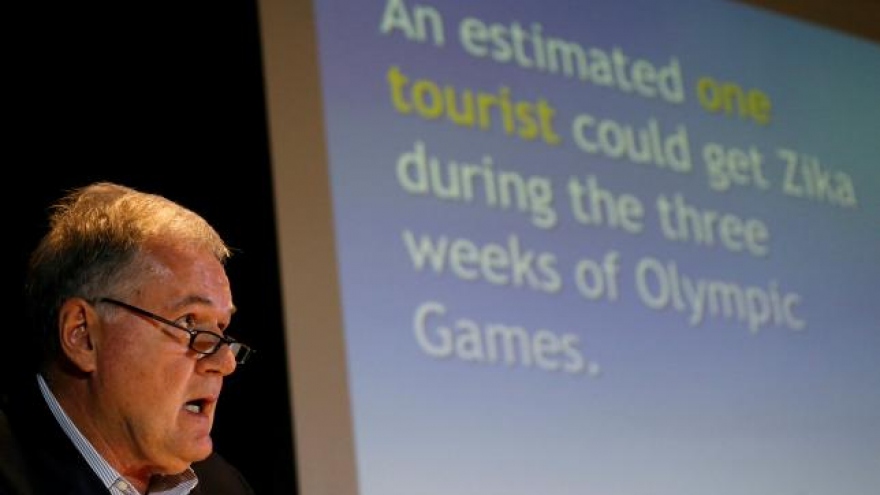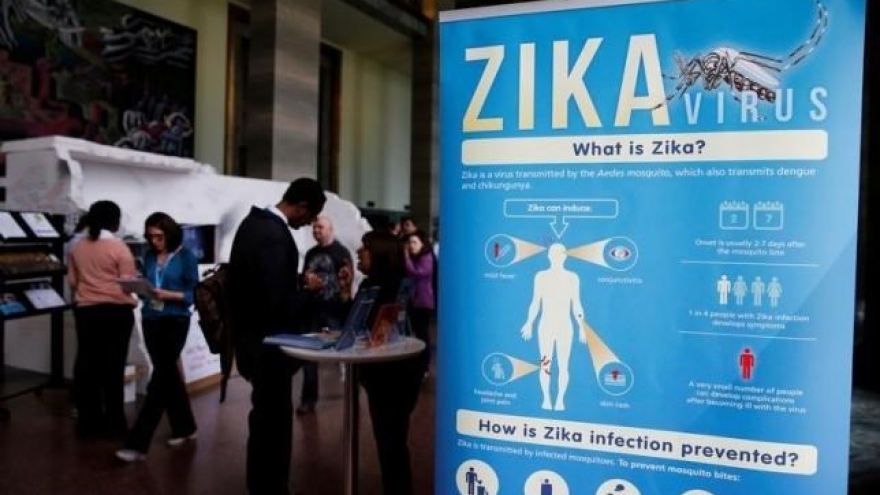Zika spreads to Miami Beach, U.S. expands travel warning
Federal health officials on August 19 warned pregnant women not to travel to trendy Miami Beach after Florida confirmed that the mosquito-borne Zika virus was active in the popular tourist destination.
 |
The new warnings represent a challenge to Florida's multibillion dollar tourism industry, with Miami Beach accounting for nearly half of visitor stays in the Greater Miami area. They also heighten concerns over Zika's spread in the continental United States.
In a press conference, Florida Governor Rick Scott said state health officials had identified five cases of Zika believed to be contracted in Miami Beach.
"This means we believe we have a new area where local transmissions are occurring in Miami Beach," he said, noting that the state had already stepped up pesticide spraying efforts in this area.
The new transmissions come as Miami-Dade continues to battle Zika in the Wynwood arts neighborhood of Miami, the site of the first locally transmitted cases of Zika in the continental United States.
In Miami Beach, the state believes Zika transmission is confined to a 1.5-square-mile area located between 8th and 28th streets in the popular South Beach neighborhood.
Miami Beach resident Steve Ehrlich, 30, said news of the five cases transmitted somewhere in the blocks around his home was not surprising, but that did not make it any less concerning.
"You knew it was going to intermingle all over the place," he said.
And though Ehrlich said and he and his wife Caroline did not have any immediate plans to have more children, any thought of doing so has been indefinitely shelved.
Current CDC guidelines recommend men wait six months after being infected with Zika before trying to have children to avoid passing the virus to a pregnant partner through semen. The recommendations are based on observations that the virus can live in semen as long as 93 days after an infection, but a recent report in the journal Eurosurveillence described two cases in which the virus lingered in semen six months after a person was infected.
In a conference call with reporters on August 19, CDC Director Dr. Tom Frieden said there have been at least four other independent instances of mosquito-borne Zika transmission in Miami-Dade county. These were individual cases and did not represent local transmission.
Frieden said it is difficult to determine if cases are locally acquired and whether cases are related. As a result, there may be a time lag in reporting the spread of disease locally.
Given that, Frieden said there could be transmissions that have not been identified throughout Miami, which is why the CDC has advised pregnant women and their sexual partners who are worried about potential exposure to consider avoiding travel to Miami entirely.




